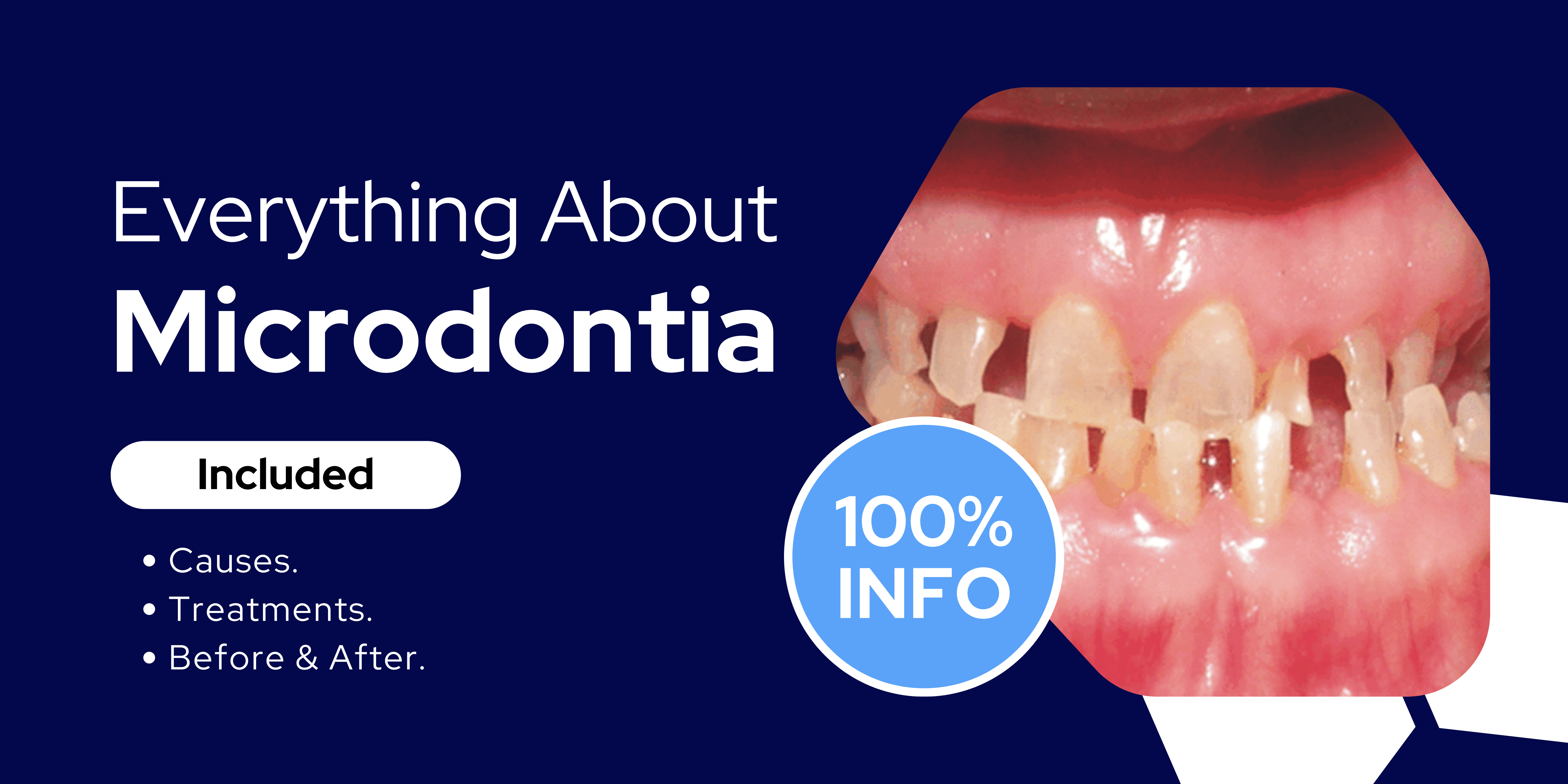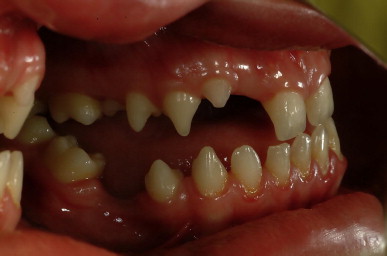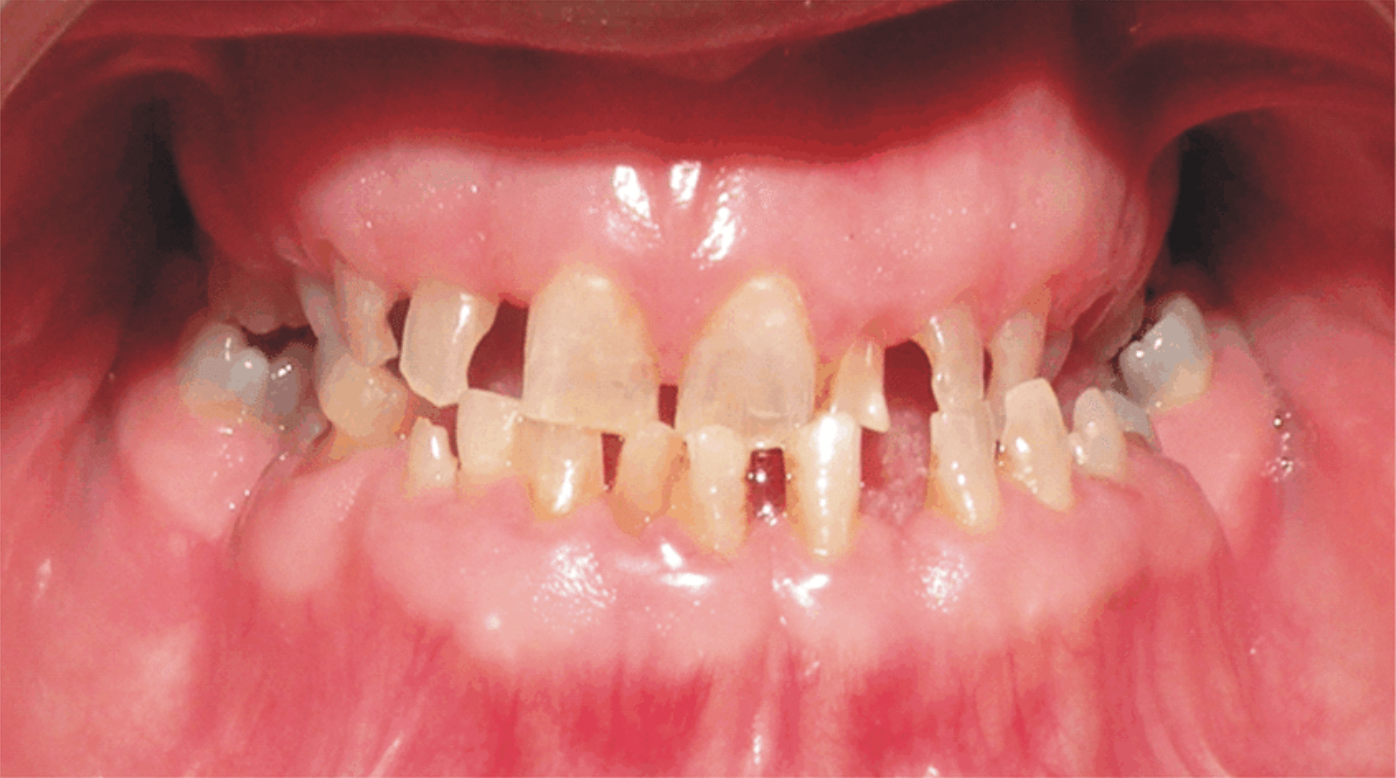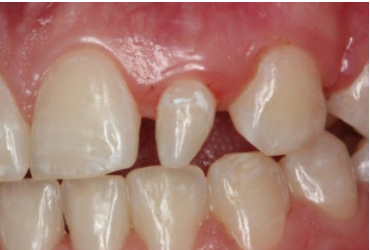I am Dr.Anooja V Chandran, an PG in Endodontics and I am the founder of this blog DentalFry. 😀
To educate dental students, I write about different topics in dentistry and is shared as dental notes.
On this page, I will be providing you a basic to advanced idea about Microdontia. You can go through the article and give me a review in comments…
From the term microdontia, it is clear that micro means small and dontia means a state relating to teeth. That is a term used to describe teeth that are smaller than normal that is outside the usual limit of variation.
In our day-to-day life, we are exposed to many people and as a dentist, the first thing we observe in people’s mouths is their teeth than any other thing. Secondly will notice their eyes, nose, etc. This is the major difference between a dentist and a common man.
So when you observe their teeth you can see in some of the individual’s teeth of different sizes. In some individual, their teeth would be smaller size while in others they would be larger size than normal.
Today will discuss the condition where the size of the teeth is smaller than normal and the condition is known as microdontia.
Microdontia comes under the developmental disturbance in the size of the teeth.
Contents
Now will discuss the categories of microdontia
Microdontia is categorized into 3 types:
- True generalized microdontia.
- Relative generalized microdontia.
- Microdontia involves a single tooth.
TRUE GENERALISED MICRODONTIA
From the term true generalize will come to know that all the teeth are smaller than normal.
It is the rarest kind of microdontia
It is commonly seen in conditions like pituitary dwarfism.
RELATIVE GENERALISED MICRODONTIA
Normal or slightly smaller than normal teeth are present in the jaw that are somewhat larger than normal.
Here the key term is “relative” since the size of the larger jaw makes teeth look smaller even though they are not.
It is a condition caused due to hereditary factors.
A person may inherit the jaw size from one parent and the tooth size from the other parent.
MICRODONTIA INVOLVING SINGLE TEETH – Localized Microdontia
It is the most common condition seen. They are commonly seen in the maxillary lateral incisor and the third molar.
What do you mean by peg lateral?
It is a condition where the maxillary lateral incisor doesn’t develop like a normal tooth where its size would be smaller and it looks like a cone shape.
So one of the common forms of microdontia is that which affects the maxillary lateral incisor a condition called peg lateral.
The roof of the teeth would be shorter than normal.
Causes of Microdontia
The causes of microdontia can be due to both genetic factors and environmental factors.
- Pituitary dwarfism.
- Cleft lip and palate.
- Down syndrome.
- Ectodermal dysplasia.
- Turners syndrome.
- Williams syndrome.
- Oral facial digital syndrome.
WHEN TO SEE A DENTIST?
When you observe any pain in your teeth or in some cases small teeth with wide gaps among them. Food accumulated in the gaps and also wear and tear.
Microdontia Treatments
We are so much concerned about our smile and aesthetic.
The first one is the use of Veneers. The veneer are thin covering usually made of resin composite material. Here the veneer is taken and cemented with composite and they are fixed to the front of the teeth. But compared to the crown the strength of the veneer is less.
You can see the microdontia before and after image below.
The second option is the use of Crown. In this case crown or cap called by the common man is used and this will cover the front and the back of the teeth. This would provide more strength.
The third option is composite bonding. Composite bonding is a method where the dentist applies a composite to the teeth and shapes them into the form of teeth. First, the tooth surface is roughed, hardened, and polished.
Conclusion
As a part of my conclusion, I conclude that microdontia is a developmental disturbance in the size of the teeth. The patient should go for correction and should take proper treatment such as crown, veneer, or composite.
If you feel this article helped you in any way, feel free to show your support by sharing this to your friends in need.
If you are having any questions, you can comment it below and I will try my best to revert back as soon as possible.





